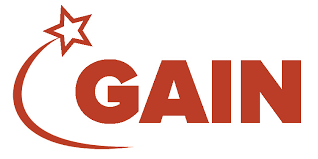Main Menu
Latest Blog Entry
User login
How to change habits: part 1
“We are what we repeatedly do. Excellence, then, is not an act, but a habit.”
 Aristotle’s quote is often used, but it is hard to follow. When working with athletes, it is often the intangibles that make the difference to the overall outcome of the training programme.
Aristotle’s quote is often used, but it is hard to follow. When working with athletes, it is often the intangibles that make the difference to the overall outcome of the training programme.
I often see young coaches or academics popping out and inflicting paper programmes on athletes and saying “I have shown them, now they have to do it“.
Unfortunately (or fortunately) athletes are human beings, not artificial constructs.
We must therefore coach the person first and then the programme second.
Athlete’s do not operate in a vacuum
In order to make gains in training we know that not only must the athlete work, they need to rest and recover. The two things I never assume that an athlete does well are:
 Sleep.
Sleep.- Eat.
Just saying, “eat healthy food” and “get 8 hours sleep a night” does not recognise that behaviour needs to change, and that comes from habits.
Very few people think that 5 hours sleep a night and eating crisps and chocolate are the way to become an Olympian.
Some education is necessary:
- breakfast cereals,
- how much sleep is needed,
- recovery drinks,
- recovery strategies for example.
Mostly though, it is getting the athlete to incorporate healthy behaviours and habits into their lifestyle.
Working on the intangibles
Changing behaviour is not easy. Education is one part of it, but people need help doing this. It might involve changing the culture of the team/ club or the home environment too.
Part 2 of this blog will look at Goal setting and how to get started,
Part 3 will look at some useful tools on how to help you maintain your good habits.
Client Testimonials
 Vern Gambetta: GAIN founder
Vern Gambetta: GAIN founder
James Marshall is the consummate professional, always learning and working to make himself better. His focus is always on the athletes he working to make them better by exploring and discovering the dimensions of movement. He is a longtime active member of the GAIN professional development network. This gives him access to other professionals around […]
More


Comments
[…] Read the Excelsior Guide to goal setting […]
[…] these, the first- accuracy- is perhaps the most important as it inculcates the habit of performing every act with precision. It should therefore be continually kept before the […]
[…] gets it right again. In the 2 previous blogs we have looked at the importance of lifestyle in athletes’ lives and how to use goal setting to set […]
[…] (Further reading: how to change habits) […]
[…] a little discipline on your part, in sticking to the program, you will quickly see desirable habits developing in your athletes, less injuries and better performance. Early success in your new […]
[…] I have made some resolutions and set some goals for 2013, They are either business, personal, or family. I will share a few with you as you can then hold me accountable later on in the year (Accountability and informing others is a useful trick to help stay on track). […]
[…] you may think that is too simplistic. My job is not to impress anybody with what I know, it is to affect change of behaviour within the golfers (and their […]
[…] have talked previously about the importance of habits and how to form good ones. That was mainly about physical acts, but what about mental toughness? Can that be […]
[…] parents for how you are. You inherit your skin colour, your hair colour, your bones, the rest is habit. My Dad was overweight and unhealthy and he died young. I wasn’t going to let that happened to […]